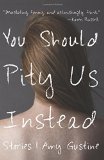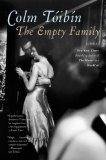Summary | Excerpt | Reviews | Beyond the book | Read-Alikes | Genres & Themes | Author Bio

Stories
by A.L. KennedyPowerful and funny, intimate and profound, the stories in What Becomes capture the spirit of our times with dark humor, poignant hopefulness, and brilliant evocation of contemporary social and spiritual malaise.
Twice selected for Granta’s list of Best Young British Novelists, winner of the 2007 Costa Book Award for her acclaimed novel Day (“Day is a novel of extraordinary complexity”—The New York Review of Books), which was also chosen as one of New York magazine’s top ten books of the year—the internationally revered A. L. Kennedy returns with a story collection whose glorious wit and vitality make this a not-to-be-missed addition to the canon of one of our most formidable young writers.
No one captures the spirit of our times like A. L. Kennedy, with her dark humor, poignant hopefulness, and brilliant evocation of contemporary social and spiritual malaise. In the title story, a man abandons his indifferent wife and wanders into a small-town movie theater where he finds himself just as invisible as he was at home. In the masterfully comic “Saturday Teatime,” a woman trying to relax in a flotation tank is hijacked by memories of her past. In “Whole Family with Young Children Devastated,” a woman, inadvertently drawn into a stranger’s marital dysfunction, meditates on the failings of modern life as seen through late-night television and early-morning walks.
Powerful and funny, intimate and profound, the stories in What Becomes are further proof that Kennedy is one of the most dazzling and inventive writers of her generation
Towards the end of the title story in this bleak yet bracing collection, a man delivers a haunting interior monologue about how people cope, or fail to cope, with loss: "Our town is full of people running back and forth in torn days and every other town is like that, too. Our world is thick with it, clotted in patterns and patterns of grief." In the remaining eleven stories, A.L. Kennedy goes on to depict such towns, such characters, all dealing in their own complex and eccentric ways with despair, longing, and the occasional glimpses of love that enter their lives... If all this sounds incredibly depressing… well, it sometimes is... On the other hand, her sharp sense of humor acts as a rescuing hand reaching into the bottom of a well, offering a saving grace to her characters in their darkest moments of despair...continued
Full Review
(676 words)
This review is available to non-members for a limited time. For full access,
become a member today.
(Reviewed by Marnie Colton).
"My head will keep on racing throughout this, I have no doubt," declares the speaker at the beginning of "Saturday Teatime" as she embarks on her first experience in the device known as a flotation tank, sensory deprivation tank, or isolation tank. And as she predicts, her thoughts do indeed surge in multiple directions, dredging up painful memories as she lies in salted water within an encapsulated space that she compares to a cupboard. Sealed inside this womb-like, completely dark container, she tries to reassure herself that "this must seem only snug and homely, buoyant: no overtones of drowning, suggestions of creatures that rise from unlikely depths, hints of noise underneath the silence, eager."
 The neuropsychiatrist John C. Lilly ...
The neuropsychiatrist John C. Lilly ...
This "beyond the book" feature is available to non-members for a limited time. Join today for full access.

If you liked What Becomes, try these:

by Amy Gustine
Published 2016
A debut collection of short stories which sympathetically explores some of the toughest dilemmas we face in our struggle though life.

by Colm Toibin
Published 2012
From the internationally celebrated author of Brooklyn and The Master, and winner of the International IMPAC Dublin Literary Award, comes a stunning new book of fiction.
I always find it more difficult to say the things I mean than the things I don't.
Click Here to find out who said this, as well as discovering other famous literary quotes!